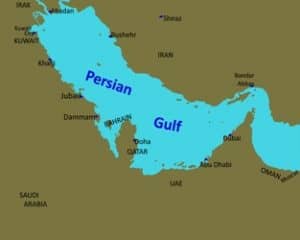 If you have served in southwest Asia military operations at any time from August 2, 1990 to the present and you suffer from an undiagnosed or chronic medical condition, you may be eligible for veterans’ disability benefits.
If you have served in southwest Asia military operations at any time from August 2, 1990 to the present and you suffer from an undiagnosed or chronic medical condition, you may be eligible for veterans’ disability benefits.
Presumptive diseases for Gulf War veterans are sometimes referred to as Gulf War Syndrome or Gulf War illness.
They include symptoms of undiagnosed illnesses such as:
Other presumptive diseases for Gulf War veterans include diagnosable gastrointestinal disorders such as:
Chronic fatigue syndrome and fibromyalgia are also considered presumptive diseases for Gulf War veterans. Other conditions may also qualify you for benefits.
To qualify for benefits because of an undiagnosable illness, a gastrointestinal illness, chronic fatigue syndrome, or fibromyalgia you need to prove that:
You must provide evidence of your service in the Gulf region and medical evidence of your diagnosis and treatment. The Department of Veterans Affairs (VA) may request an examination if there is no medical evidence of treatment for your disability or illness.
You may apply for benefits online or in person at your local VA office. You have the right to consult with an experienced veterans’ disability lawyer prior to applying, or after, to make sure that your rights and benefits are protected. If we can help you during this time, please do not hesitate to contact us through this website or by phone.

 In Vietnam and the Korean demilitarized zone, the United States military used Agent Orange, a powerful herbicide and defoliant, to clear thick jungle and expose the enemy. Unfortunately, some of those in uniform who were exposed to the chemical subsequently suffered from a range of serious illnesses and conditions that have been linked to Agent Orange.
In Vietnam and the Korean demilitarized zone, the United States military used Agent Orange, a powerful herbicide and defoliant, to clear thick jungle and expose the enemy. Unfortunately, some of those in uniform who were exposed to the chemical subsequently suffered from a range of serious illnesses and conditions that have been linked to Agent Orange.
The Department of Veterans Affairs assumes that the following people were exposed to Agent Orange:
If you can prove that you served in these locations during these times and that you were not dishonorably discharged, you do not have to prove that you were exposed to Agent Orange in order to get veterans’ disability benefits for a disease that may develop because of Agent Orange exposure.
You may also recover veterans disability benefits if you can prove that you were exposed to Agent Orange and you served:
To file a successful Agent Orange-related disability claim, a veteran must prove where and when he served, he must provide a medical diagnosis of a disease that is linked to Agent Orange exposure, and he must prove that the disease occurred after the exposure.
The VA recognizes that the following diseases are related to Agent Orange exposure:
A medical diagnosis is required before veterans’ disability benefits will be awarded.
If you believe your illness or disease is linked to your exposure to Agent Orange in Vietnam or elsewhere, it is important to speak with a veterans’ disability attorney regarding your case. While a connection between your service and your illness may be presumed, your disability benefits are not automatic. Please contact us today via this website or by phone for more information about how to protect your rights and fair recovery of benefits.

If you have been diagnosed with type 2 diabetes and believe that your condition was caused by or made worse by your service in the military, you could be eligible for veterans’ disability benefits. In fiscal year 2015 (the most recent year for which statistics are available), diabetes was the 9th most common disability among all veterans’ disability recipients. In that year, 431,166 veterans received benefits because of their type 2 diabetes.
There is more than one way to qualify for veterans’ disability benefits if you have type 2 diabetes. Specifically, you may qualify for benefits if:
When you apply for benefits, it is important to describe all of the conditions associated with your type 2 diabetes. For example, you should make sure that information about all related conditions is included with your applications, including:
Don’t assume that you will get benefits simply because you are a veteran with type 2 diabetes. Instead, make sure that the Department of Veterans Affairs has all of the information it needs to make the right decision on your claim. For help doing that, please contact us today via this website or by phone to learn more about your rights.

Survivor’s guilt is a common and understandable response when your fellow servicemembers have been badly hurt or killed. You may experience feelings of self-blame, unworthiness, loneliness, and depression. You may have difficulty sleeping, you may be angry, you may withdraw from others, you may have difficulty concentrating, and you may have other problems that interfere with your daily activities and your ability to do your job.
All of these feelings are normal and can be processed with the help of therapy and other treatments.
You may be suffering not only from survivor’s guilt, but also from post-traumatic stress disorder (PTSD) or other mental health issues arising from your military service. You should talk to a doctor about all of your symptoms.
You may be eligible for veterans’ disability benefits if you suffered an injury or illness during your service or if a previous condition was made worse by your service. In order to get veterans’ disability benefits you must apply by completing VA Form 21-526, Veterans Application for Compensation and/or Pension. When you complete this form, you should be prepared to provide information about your condition, about your service, and about your discharge. You may be asked to submit to an examination with a doctor at a VA hospital before the Department of Veterans Affairs (VA) makes a determination about your eligibility and about your benefits.
It saves you time and stress to get your application right the first time. If you have medical conditions like PTSD or survivor’s guilt and would like to apply for veterans’ disability benefits, we can help. Our experienced lawyers will work hard to get your application approved. Please contact our veterans’ disability attorneys via this website or by phone to set up a confidential meeting at your convenience. We look forward to helping you during this difficult time.

All disabled veterans do not get the same compensation from the Department of Veterans Affairs (VA). Even veterans who served in the same unit and who suffer the same type of disability may recover different amounts of veterans’ disability benefits.
The specific amount of compensation that you receive from the VA for your service related disabilities partially depends on your disability rating—a number that ranges from zero percent to one hundred percent. Disability ratings are made in 10% increments. Thus, you may be considered 0%, 10%, 20%, 30%, 40%, 50%, 60%, 70%, 80%, 90%, or 100% disabled. Those with a 0% disability rating are not considered disabled, while those with a 100% disability rating are considered the most disabled.
Your disability rating is usually determined through a medical examination conducted through the VA. During this exam, a medical professional associated with the VA will evaluate your mental and physical health while following a number of specific guidelines to determine your disability rating.
If you have more than one disability connected with your military service, those disabilities will be rated individually and then combined using a chart (not just added together). If you have a disability that seems to fall between two different disability ratings, the VA will choose the higher disability rating. As is the case with a single disability, your disability rating for multiple disabilities must be an increment of 10.
It is vital that your disabilities are rated correctly if you would like to receive fair compensation for your sacrifices. If you believe that you did not receive a fair disability rating or that you deserve more VA disability compensation, speak to our Texas disability attorneys today about your case. We will review your case with you and, if appropriate, advocate for your right to recover additional benefits. To learn more, please contact us any time—via this website or by phone—to schedule a confidential consultation.

Si fue diagnosticado(a) con diabetes tipo II y considera que su condición fue ocasionada o empeorada por su servicio militar, es posible que llene los requisitos para recibir beneficios por discapacidad de la Administración para Veteranos. En la actualidad, alrededor de 270,000 veteranos reciben beneficios por discapacidad en razón de su diabetes, la mayoría de los cuales son veteranos de la guerra de Vietnam que estuvieron expuestos al Agente Naranja.
Para presentar exitosamente una reclamación por discapacidad ante la Administración para Veteranos sobre la base de diabetes tipo II , usted debe probar la relación entre su enfermedad y su servicio militar activo. Si tiene un historial médico que muestra que usted desarrolló esta enfermedad durante su servicio o dentro del año de su regreso a casa – o que sufrió síntomas no diagnosticados asociados con la diabetes durante este tiempo – es posible que tenga un caso. Asimismo, si tiene alguna otra lesión o enfermedad relacionada con su servicio que puede demostrar condujo a su diagnóstico de diabetes, también podría tener un caso.
Si prestó servicio militar en la guerra de Vietnam y, en algún momento, pisó pié en Vietnam durante ese servicio, el Departamento de Asuntos para Veteranos supone que usted estuvo expuesto al Agente Naranja, un herbicida tóxico que los profesionales médicos han asociado a una variedad de enfermedades, incluyendo la diabetes tipo II. Los veteranos que han estado expuestos al Agente Naranja y que padecen de diabetes llenan los requisitos para recibir una compensación por discapacidad.

© 2025 Morgan Weisbrod, All Rights Reserved, Reproduced with Permission Privacy Policy | Site Map